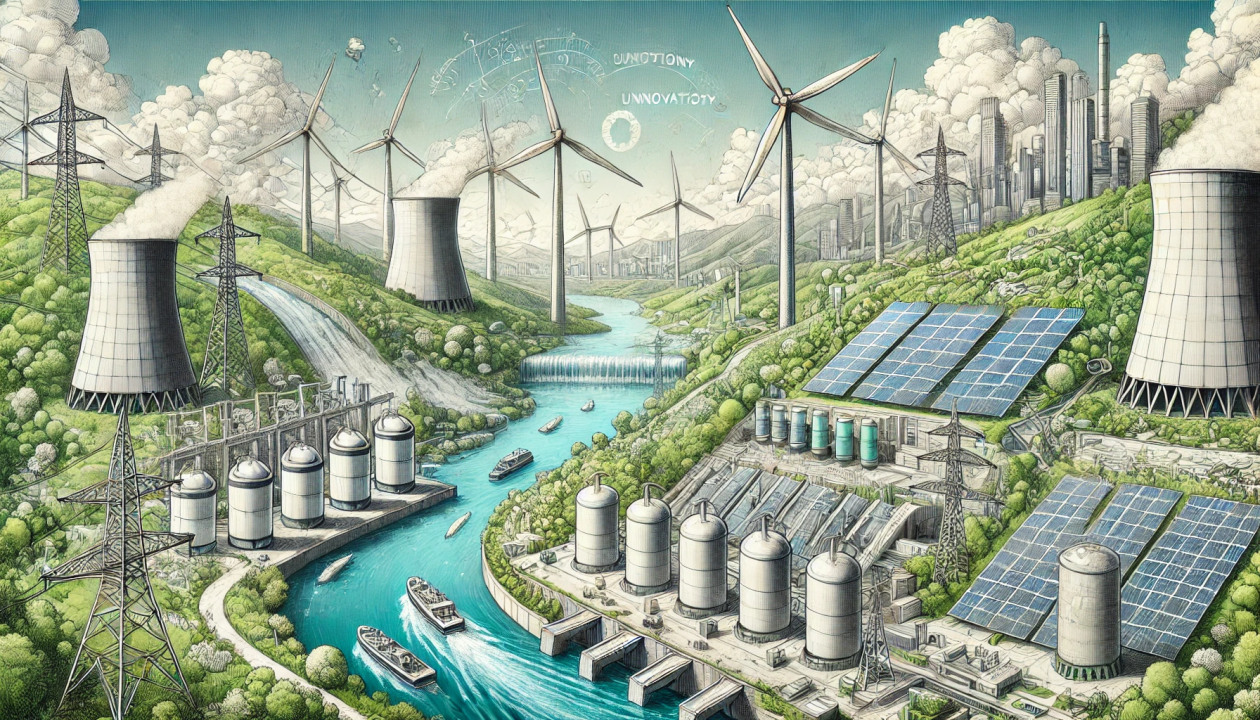
Why is Renewable Energy Important for the Future
As the world faces increasing environmental challenges and a growing demand for energy, the light of hope for a sustainable future comes in the form of renewable energy. Among these, solar energy is probably one of the most transformative solutions we have. By tapping into the Sun’s virtually unlimited power, solar provides not only a cleaner and more sustainable substitute to fossil fuels but also an essential foundation towards fighting climate change, ensuring energy security and facilitating economic growth. This article will explore into why renewable energy in is so significantly important for our future.
Solar Energy: A Key to Combating Climate Change
Climate change is one of the major threats to our planet and is produced by carbon emissions from fossil fuel burning. Solar energy doesn’t produce any harmful carbon dioxide secretions. A typical home solar panel system will remove three to four tons of carbon emissions each year that’s over 70 tons in its lifetime!
Pakistan has some of the peak levels of sunlight in the world so there is excessive potential for us to produce solar power. If we all made the change to solar power, not only would we hugely decrease our collective carbon footprint we could lead the world in fighting climate change.
Ensuring Energy Security with Renewable Energy
The reserves of fossil fuels are finite and are susceptible to price volatility due to geopolitical influences. On the other hand, solar energy is ample and universally accessible. Countries can lower their dependence on imported fuels and build energy independence through solar power. In Pakistan, wherein power outages are one of the most common challenges, solar energy perfectly answers.
Solar panels in combination with battery storage systems address the constant demand for fossil fuels to ensure outage-proof electricity, even during blackouts in the grid. This decentralized approach positively contributes to energy security and provides households and businesses a steady supply of electricity.
Economic Benefits
The solar energy area is an important driver for economic progress. From engineering and installation to maintenance, the industry generates lots of jobs worldwide. In Pakistan, the rising acceptance of solar systems is encouraging employment chances in engineering, installation, and system project.
Furthermore, solar energy decreases electricity costs for customers. Through encouragements like net metering, where additional solar power is sold back to the grid, households and industries can attain financial savings while contributing to the energy supply.
Public Health and Environmental Advantages
Traditional energy sources such as the burning of coal and oil, are major suppliers to air and water contamination, harmfully disturbing public health. Solar energy, being a sustainable and renewable source of energy, removes these pollutants, important to enhanced air quality and reduced health hazards.
By shifting to solar power, we can defend environments and biodiversity, as highlighted in Renewable Energy and Its Role in Protecting Biodiversity, guaranteeing an improved environment for future generations. Cleaner air and water contribute to healthier living settings and lesser healthcare expenses.
Bridging the Energy Gap in Remote Areas
Solar energy’s scalability and adaptability make it perfect for countryside and remote areas where spreading power grids is challenging. In Pakistan solar systems are deliver electricity to underserved areas, allowing admittance to lighting, refrigeration, and communication technologies.
Small-scale solar installations, such as solar home systems and microgrids, strength communities by improving quality of life and promoting economic progress.
Declining Costs and Advancements in Solar Technology
Over the last years, the prices of solar panels in Pakistan have dropped, making solar energy more available. In Pakistan, government motivations and technological developments have additional reduced the cost of solar systems, inspiring extensive acceptance.
For example, net metering permits customers to make money with extra energy, offering economic incentives for solar installation. These progresses highlight the economic capability of solar energy as a longstanding solution.
Solar Power’s Role in Pakistan’s Energy Transition
Pakistan’s geographical location, with 5 to 7 ultimate daylight hours daily, makes it perfect for solar energy production. By advancing in large-scale solar projects and encouraging residential installations, the country can decrease its reliance on fossil fuels and lesser energy costs.
Advanced solutions like solar carports, rooftop systems, and solar farms are in advance power, positioning Pakistan as a regional leader in renewable energy acceptance. These hard works highlight the transformative potential of solar energy in addressing energy challenges.
Final Thoughts
Renewable energy, with solar power at its essential, is the foundation of a sustainable and wealthy future. By harnessing the sun’s energy, we can fight with climate change, confirm energy security, create jobs, and improve public health. The decreasing cost of solar technology and its rising effectiveness make it an accessible and practical solution for global energy needs.
As a leading solar company in Pakistan, DSG Energy are dedicated to authorizing communities with consistent and sustainable energy solutions. Together, we can pave the way for a brighter, cleaner, and greener future.
“Renewable energy is the golden thread that ties together environmental health, economic growth, and social equity.”

